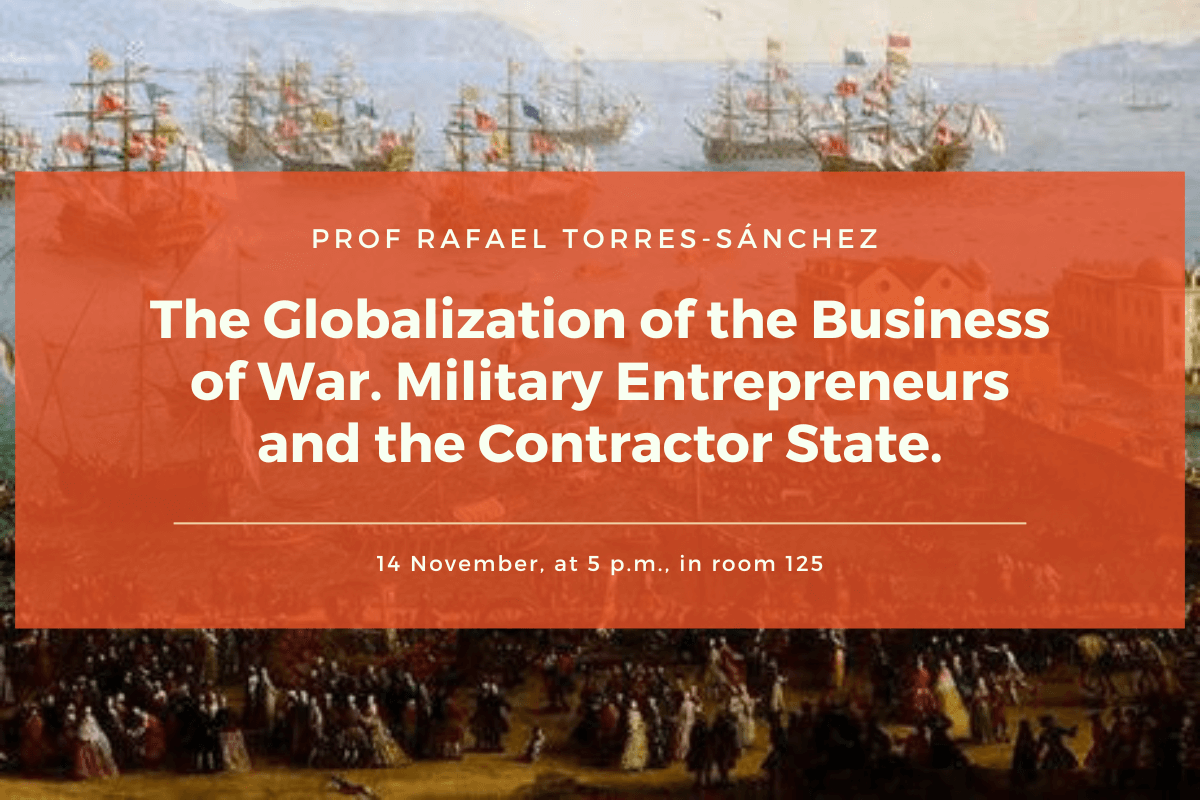The Marian Malowist Global History Seminar

Please join us for a lecture as part of the Marian Malowist Global History Seminar entitled. ‘The Globalization of the Business of War. Military Entrepreneurs and the Contractor State’.
The lecture will be given by Prof. Rafael Torres-Sánchez (Universidad de Navarra). He studies the relationship between state-building and warfare in Spain and Europe in the long eighteenth century.
Since 2004, he has led the international research group ‘Red Imperial. Contractor State Group’, which brings together the research efforts of 17 national and international universities: https://www.unav.edu/web/contractor-state-group
The event will take place on 14 November, at 5 p.m., in Room 125 or meet.google.com/kpu-ehzc-eor
The Globalization of the Business of War. Military Entrepreneurs and the Contractor State:
Historiography on the role of war in national development during the Early Modern period has undergone an exciting evolution in recent years. Initially, war was viewed as a driver of institutional change. Sustaining the military effort led to administrative transformation in almost every country, with more coercive treasuries and more extensive and extractive taxation. The emphasis on taxation led, in a second phase, to the view that the key to unequal growth among nations lay in the level of development reached by what were then called “fiscal-military states.” However, the realization that all states evolved into “fiscal-military states” did not solve the problem. Therefore, the relationship between war and development was reexamined. In a third phase, the analysis shifted to the demand generated by war, in what came to be called the “contractor state,” that is, how states redistributed accumulated resources and incomes through the demand for military supplies. Currently, this approach is being revised due to evidence that significant evolution occurred in that redistribution, as entrepreneurs were the ones who effectively channeled the demand to the entire productive fabric and managed its distribution. The thesis presented here is that war became a growth lever in those countries where entrepreneurs and society as a whole participated and collaborated in the war effort. In the end, national differences could also be explained by this societal participation.